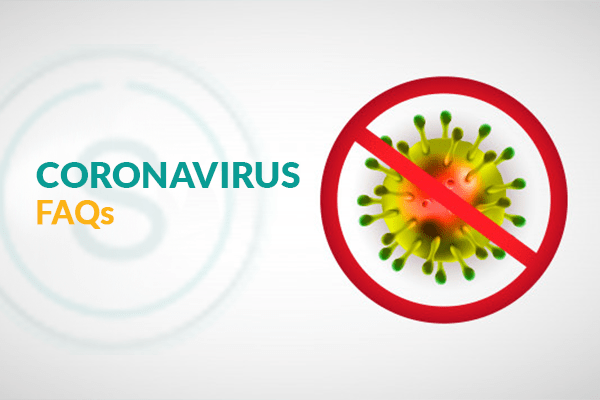COVID-19 is a fast-spreading disease caused by a coronavirusthat jumped from animals to humans in late 2019.
SMILES here explains the most pressing and recent questions related to this fast-moving pandemic outbreak.
1. When will the coronavirus end?
There is speculation that the spread of coronavirus will subside with summer’s warmer weather, as it occurs with the flu and the common cold. But, since this virus is brand new, health officials are not yet sure if that will also be the case for COVID-19. Not all viruses are similar and though it’s less prevalent people can catch the flu and the cold in summer.
At this time, we do not know whether the spread of COVID-19 will decrease with summer (warm weather)” according to the Coronavirus Resource Center.
2, How does Novel Coronavirus (COVID-19) spread?
The coronavirus is thought to spread from person to person (within about 6 feet) through handshakes and airborne respiratory droplets from a cough, sneeze or even regular breathing. These disease-carrying droplets infect people primarily by entering the eye, nose or mouth, hence it is recommended to avoid touching your face.
The virus also persists on hard surfaces for long that makes the door handles, keys, remote controllers, cell phones, and ATMs, etc risky for transmission. This is why the Center for Disease Control (CDC) recommends practising good hygiene such as washing your hands often and avoiding close contact with people who are sick.
3. Are young people safe from the virus?
No. But, it seems that younger and healthier people handle the infection significantly better. According to the World Health Organization (WHO), older people and those with underlying medical conditions such as high blood pressure, diabetes or heart problems are more likely to develop serious illness. Even children can get COVID-19 and they tend to experience milder symptoms such as fever, runny nose, and cough.
4. How deadly is the coronavirus?
Since the coronavirus is a new virus, we can only estimate the fatality rate of COVID-19 in these early stages. But, novel coronavirus or COVID-19 is contagious; it is as deadly as the regular flu. The National Institute of Allergy and Infectious Diseases (NIAID) also said that COVID-19 maybe 10 times deadlier than the seasonal flu.
5. How quickly can you recover from being infected?
This depends on the severity of the symptoms you experience. The vast majority of patients have mild symptoms of coronavirus that don’t require hospitalization. With these milder symptoms, you should stay at home, rest and avoid contact with others so you don’t spread the virus and recover faster within a few days. But, those who are hospitalized generally need specific treatment (provide extra oxygen) and require more time to recover (sometimes weeks).
6. Do paracetamol or ibuprofen help against the novel coronavirus?
There is yet no medication against novel coronavirus or COVID-19 -says the World Health Organization (WHO). Paracetamol and ibuprofen do not help cure the virus but they can reduce the symptoms such as fever, sore throat, and malaise.
Also, currently, there is no evidence that the use of paracetamol or ibuprofen (or diclofenac, naproxen, called NSAIDs) can actually worsen the disease caused by a virus. However, paracetamol is preferred as it has the least side effects.
7. Can you get coronavirus through food?
There is no evidence to support that coronavirus is transmitted through food – says The Food and Drug Administration (FDA). COVID-19 is generally transmitted from person to person through respiratory droplets produced when an infected person sneezes or coughs. It may also be possible to get COVID-19 by touching a surface or object that has a virus on it and then touching your eyes, nose or mouth. But, foodborne exposure to coronavirus is not a route of transmission.
8. I am pregnant, should I be particularly worried?
No. We see the virus infection has the same course of action in women who are not pregnant as well. As far as we know, there is no increased risk of miscarriage or birth defects due to virus infection says WHO.
Based on the current data, the consequences of an infection with COVID-19 in pregnant women do not appear to be different for a child and mother than for other infectious diseases.
9. Do you become less contagious if you disinfect your nose and throat with a disinfectant solution?
No this form of cleaning is not used to prevent virus infection or to treat a coronavirus. The virus may be present inside the nose or throat. Cleaning the nose and throat separately has no positive effect. Moreover, inserting a disinfectant solution into the nose can cause damage to the mucous membranes. This may increase the risk of a bacterial infection or even increase the spread of the coronavirus.
10. What can I do to prevent the spread of novel coronavirus?
The Center for Disease Control (CDC) and other health care officials offer some tips to prevent from affecting COVID-19.
- Stay at home when you are sick with symptoms such as the runny nose, cough, sore throat or fever.
- Practice social distancing (crowds and close contact with others)
- ● Wash your hands regularly with soap and water for at least 20 seconds (or use an alcohol-based hand sanitizer)
- ● Do not touch your eyes, nose, and mouth with unclean hands.
- ● Wear a face mask if you are sick to help prevent others from infecting.
- ● Do not shake hands, instead use Namaskar to greet others
- ● Disinfect frequently touched hard surfaces (door handles, cupboards, etc)
- ● The coronavirus is rapidly evolving. To stay informed, keep following SMILES.

